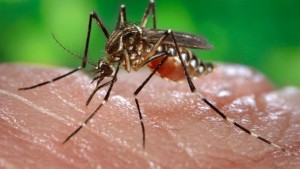 The case of a nurse infected with Zika in the Dominican Republic has provided Italian scientists with evidence that the virus can affect the brains of adults and may damage memory.
The case of a nurse infected with Zika in the Dominican Republic has provided Italian scientists with evidence that the virus can affect the brains of adults and may damage memory.
In a letter published in the journal Emerging Infectious Diseases, the researchers described the case of the 32-year-old volunteer nurse who sought treatment nine days after returning to Italy from a tour of duty in the Caribbean country.
The sick woman arrived at a clinic with a rash, headache and weakness. She soon developed difficulties walking and was hospitalized for neurological symptoms.
The patient was tested for the dengue, chikungunya and zika viruses, and was found to be infected with Zika.
The virus or its genetic material showed up in her blood, urine, saliva and vagina. She told doctors she did not have sex while in the Dominican Republic.
“Complete neuropsychologic examinations (on days nine and 10) showed mild deficits in attention and mental processing speed and mental flexibility and moderate deficits in verbal and nonverbal memory tasks,” the team at the National Institute for Infectious Diseases Lazzaro Spallanzani in Rome wrote.
“In our case, the patient reported early neurologic symptoms and moderate memory impairment in neuropsychologic examinations, all features consistent with the diagnosis of Zika virus-related encephalitis,” they added.
Best known for the devastating effect it has on the brains of developing foetuses, Zika has also been indirectly linked to damage in the brains of adults and children.
The Italian researchers cited a recent study showing Zika might affect the adult brain. While that study was conducted in mice, the scientists now have evidence from the nurse to back it up.
“It raises the possibility that Zika is not simply a transient infection in adult humans and that exposure in the adult brain could have an effect on long-term memory or the risk for depression,” they wrote.
Although most people infected with Zika have very mild symptoms and are often unaware that they have it, it is also known to cause a rare neurological condition called Guillain-Barre Syndrome (GBS), rates of which have soared in some areas hard hit by Zika.
The Italian nurse’s case suggests that subtler effects can also occur in some people.
Fortunately the sick woman responded to treatment and recovered after three weeks.
The Italian scientists said that the case showed that doctors need to be on the lookout for neurological symptoms in Zika patients.
